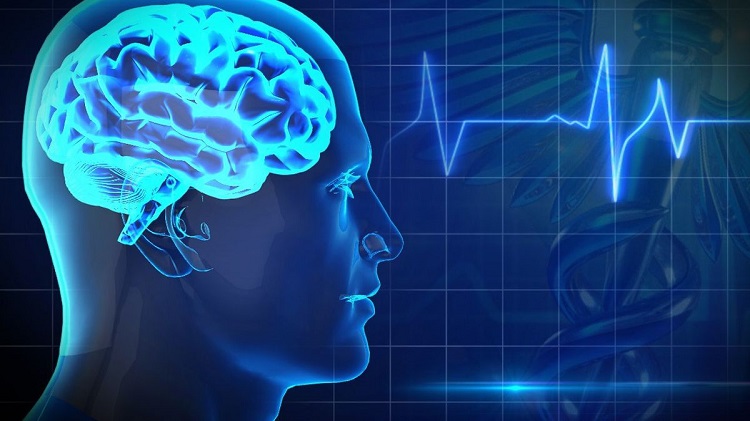Cerebral Circulation
WHAT IS CEREBRAL CIRCULATION?
Cerebral circulation is the blood flow in your brain. It’s important for healthy brain function. Circulating blood supplies your brain with the oxygen and nutrients it needs to function properly.
Blood delivers oxygen and glucose to your brain. Although your brain is a small part of your body’s total weight, it requires a lot of energy to function. According to the Davis Lab at the University of Arizona, your brain needs about 15 percent of your heart’s cardiac output to get the oxygen and glucose it needs. In other words, it needs a lot of blood circulating through it to stay healthy.
When this circulation is impaired, your brain can become damaged. Many conditions and disabilities related to neurological function can occur as a result.

HOW DOES BLOOD FLOW THROUGH YOUR BRAIN?
The four main arteries that supply blood to your brain are the left and right internal carotid arteries and the left and right vertebral arteries. These arteries connect and form a circle at the base of your brain. This is called the circle of Willis. Smaller blood vessels also branch off from these arteries to nourish different sections of your brain.
Your brain also has venous sinuses. These types of veins carry blood containing carbon dioxide and other waste products away from your cranium. Some of them connect with the veins of your scalp and face.
Nutrient and waste exchange occurs across the blood-brain barrier. This barrier helps protect your brain.
WHAT HAPPENS WHEN YOUR CEREBRAL CIRCULATION IS IMPAIRED?
When your cerebral circulation is impaired, less oxygen and glucose reach your brain. This can cause brain damage and neurological problems. Some conditions related to impaired cerebral circulation include:
Stroke
When a blood clot blocks the flow of blood in your cranial artery, a stroke can occur. As a result, the brain tissue in that area can die. When that tissue dies, it can impair the functions that part of your brain normally controls. For example, it can affect your speech, movement, and memory.
The degree of impairment you experience after a stroke depends on how much damage has occurred, as well as how quickly you get treatment. Some people fully recover from a stroke. But many people have lasting disabilities or even die from strokes. According to the American Stroke Association, stroke is the fifth leading cause of death among Americans.

Cerebral hypoxia
Cerebral hypoxia occurs when part of your brain doesn’t get enough oxygen. This happens when you don’t have enough oxygen in your blood even if there’s enough blood flow.
Causes of cerebral hypoxia include:
- Drowning
- Choking
- Suffocation
- High altitudes
- Pulmonary diseases
- Anemia
If you experience it, it’s likely you’ll appear confused or lethargic. If you address the underlying cause quickly enough, your brain tissue probably won’t become damaged. But if you don’t address it quickly enough, coma and death can occur.
Cerebral hemorrhage
A cerebral hemorrhage is internal bleeding in your cranial cavity. It can occur when your arterial walls are weakened and burst. This forces blood into your cranial cavity. In turn, this can put pressure on your cranial cavity and cause you to lose consciousness. Other possible causes of cerebral hemorrhage include abnormally formed blood vessels, bleeding disorders, and head injuries.
A cerebral hemorrhage can potentially cause brain damage and death. It’s a medical emergency.
Cerebral edema
Edema is a type of swelling that occurs due to the collection of watery fluids. Cerebral edema is swelling that occurs due to an increase of water in your cranial cavity. Disturbances in the blood flow in your brain can also cause it.
Cerebral edema can put pressure on your brain. This can eventually crush or damage your brain if it’s not relieved in time.
WHAT ARE THE RISK FACTORS FOR POOR CEREBRAL CIRCULATION?
Anyone at any age can have problems with cerebral circulation. You’re at an increased risk of having these problems if you:
- Have high blood pressure
- Have high cholesterol
- Have heart disease
- Have atherosclerosis
- Have a family history of heart disease
- Have diabetes
- Are overweight
- Smoke
- Drink alcohol
Some causes of impaired cerebral circulation may be hard to prevent. But you can lower your risk of stroke and some other conditions by practicing healthy habits and following these tips:
- Maintain a healthy weight.
- Eat a well-balanced diet.
- Exercise regularly.
- Avoid smoking.
- Limit alcohol.
Use herbs to support memory and brain health such as: ginkgo biloba(1), ginseng(2), rosemary(3), blueberry(4)…
Medically reviewed by Deborah Weatherspoon, Ph.D, MSN, RN, CRNA — Written by Tricia Kinman.
Reference source:
https://www.healthline.com/health/cerebral-circulation
https://www.healthline.com/nutrition/ginkgo-biloba-benefits
https://www.healthline.com/nutrition/ginseng-benefits
https://www.healthline.com/nutrition/rosemary-oil-benefits
https://www.healthline.com/nutrition/10-proven-benefits-of-blueberries
